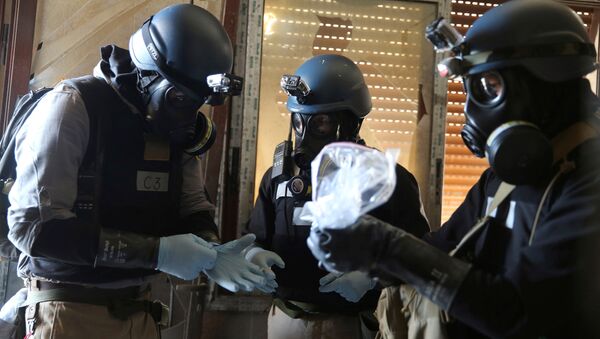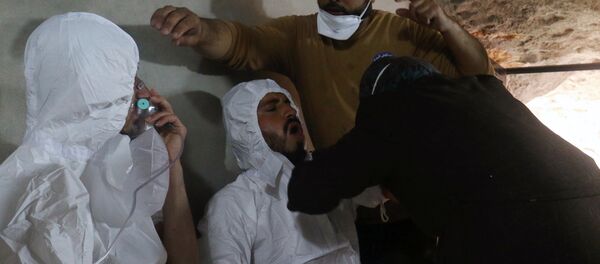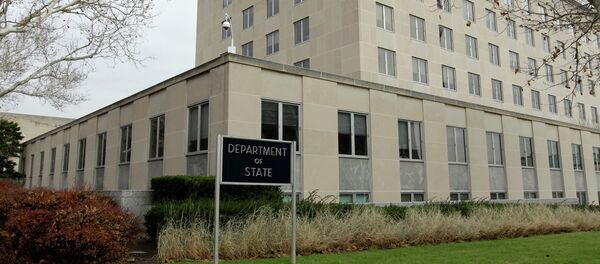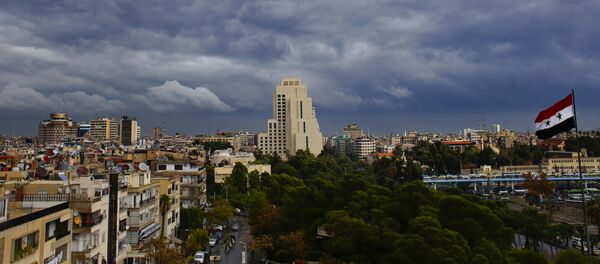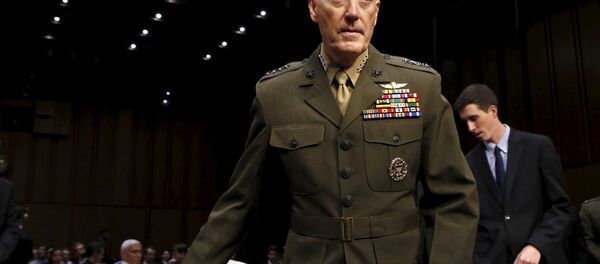The claims that the United States and United Kingdom supplied militant groups in Syria with toxic agents could be verified by a UN mission, said Vasily Nebenzya, Russia’s Ambassador to the United Nations.
Earlier this week, Syrian Deputy Foreign Minister Faisal Mekdad accused the US and the UK of supplying toxic agents to terrorists based on evidence found in Aleppo and a Damascus suburb.
"Russia’s stance in this situation is absolutely reasonable. Moreover, I think that the US and Britain should endorse it. If Washington and London block such an investigation the international community may have the impression that the two countries are responsible [for the deliveries of toxic agents to Syria] and trying to hide the facts," Shapovalov told Radio Sputnik.
According to Shapovalov, the information revealed by the Syrian government is very serious and concerning and must be thoroughly investigated regardless of the current political climate.
"Any activities related to poisonous materials must be closely monitored and investigated. This should not be a one-sided game. It is necessary to consider any possibility of such deliveries, no matter where they can come from. As for the information revealed by Damascus, it is a very solid piece of evidence," Shapovalov pointed out.
"The special equipment found consisted of hand grenades and rounds for grenade launchers equipped with CS and CN toxic agents. … The chemical munitions were produced by the Federal Laboratories company in the US. The toxic agents were produced by Chemring Defence (UK) and NonLethal Technologies (US)," Mekdad said Wednesday.
He also underscored that in accordance with Article 5 of the Convention on the Prohibition of the Development, Production, Stockpiling and Use of Chemical Weapons, the use of toxic agents is permitted only to combat riots. It is prohibited to use them in warfare.
Commenting on the allegations, the Pentagon said that its assistance to Syrian opposition groups "does not now, nor has it ever, included chemical agents."
Several incidents involving toxic materials have been reported during the course of the Syrian conflict. The deadliest one took place in the Damascus suburb of Ghouta in August 2013. According to varying estimates, it claimed from several hundred up to 1,500 lives. On April 4, the National Coalition for Syrian Revolutionary and Opposition Forces announced that several dozen people had been killed by a suspected chemical attack in Khan Shaykhun in Syria's province of Idlib. The US blamed Damascus for the incident without providing evidence to back this theory up. Syrian authorities refuted any involvement in the incident.
Following the Ghouta attack, Syria joined the Convention on the Prohibition of Chemical Weapons. This was the result of an agreement between Russia and the US on the destruction of chemical weapons in the country under the control of the OPCW and it prevented a US military intervention in Syria. In January 2016, the OPCW reported that all chemical weapons in Syria had been destroyed.

